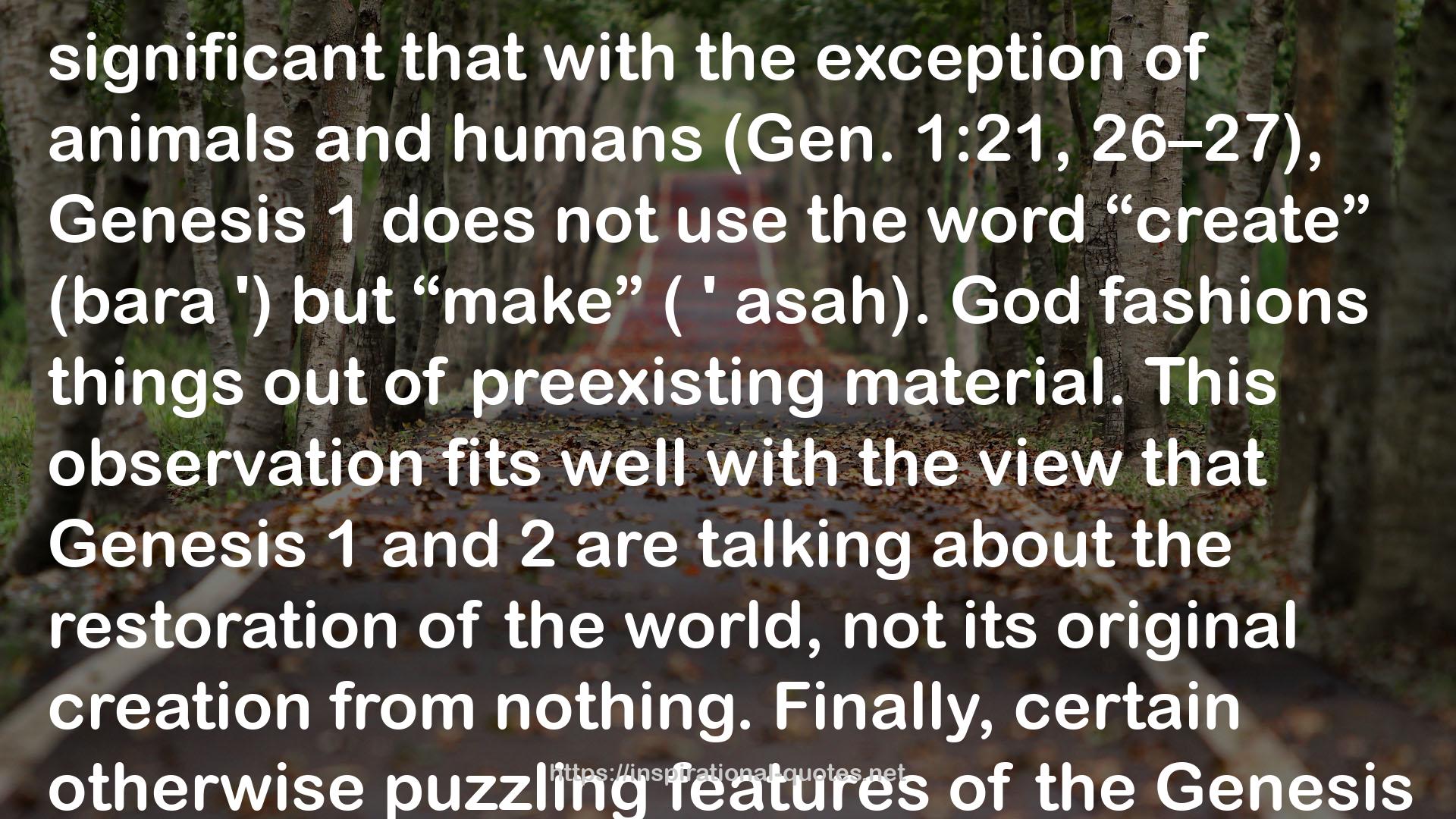" significant that with the exception of animals and humans (Gen. 1:21, 26–27), Genesis 1 does not use the word “create” (bara ') but “make” ( ' asah). God fashions things out of preexisting material. This observation fits well with the view that Genesis 1 and 2 are talking about the restoration of the world, not its original creation from nothing. Finally, certain otherwise puzzling features of the Genesis narrative become clear in light of the restoration interpretation. For example, God’s command to humankind to “have dominion” seems to suggest that humankind would be met with resistance. The Hebrew term kabash (“dominion”) usually suggests suppression, conquering, or enslaving hostile forces (e.g., Num. 32:22, 29; Josh. 18:1; Neh. 5:5; Jer. 34:16; Mic. 7:19; Zech. 9:15). Along the same lines, God’s command to Adam to “keep” (shamar) the Garden (Gen. 2:15) conveys a sense of “guarding” it from something hostile. It is the same term used to describe the role of the cherubim in keeping Adam and Eve from reentering the Garden of Eden (Gen. 3:24). But "
― Gregory A. Boyd , Across the Spectrum: Understanding Issues in Evangelical Theology
